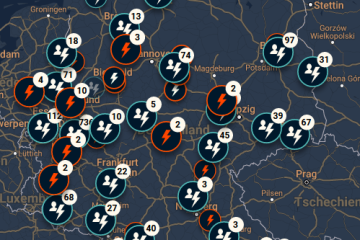Understanding ALS: Symptoms, Treatments, and Research Advances

Introduction
Amyotrophic lateral sclerosis (ALS), also known as Lou Gehrig’s disease, is a progressive neurological disease that affects the nerve cells in the brain and spinal cord. The importance of understanding ALS cannot be overstated, as it impacts thousands of Australians each year and poses significant challenges for patients, caregivers, and healthcare systems. Awareness of symptoms and treatment options is crucial for early diagnosis and management of the disease.
What is ALS?
ALS is characterized by the degeneration of motor neurons, which are responsible for controlling voluntary muscle movements. As the disease progresses, individuals may experience severe muscle weakness, loss of mobility, and eventually respiratory failure. According to the MND Association, the incidence of ALS in Australia is about 2 in 100,000 people annually, with approximately 2,000 active cases at any given time.
Symptoms of ALS
The symptoms of ALS often appear gradually and can vary widely among individuals. Common initial signs include:
- Muscle twitches in the arms, legs, or tongue
- Muscle cramps
- Weakness in the hands or feet
- Slurred speech or difficulty swallowing
- Fatigue
As the condition advances, patients may find simple tasks increasingly difficult, leading to significant life changes.
Treatment Options
While there is currently no cure for ALS, various treatments and therapies aim to manage symptoms and improve the quality of life for patients. The FDA-approved drug, Riluzole, is known to slow the progression of the disease, while Edaravone has been shown to improve function in some patients. Furthermore, multidisciplinary care teams involving neurologists, physical therapists, and occupational therapists can help patients maintain mobility and independence.
Recent Advances in Research
Research into ALS is ongoing, with various clinical trials exploring new medications and therapies. A recent study published in the *Journal of Neurochemistry* showed promising results for a gene therapy approach targeting the SOD1 gene, which has been linked to familial ALS. Furthermore, researchers are investigating the role of stem cell therapy and neuroprotective strategies in halting disease progression.
Conclusion
ALS is a complex condition with a profound impact on individuals and their families. As research continues and new treatments are developed, there is hope for improved care and potentially modified outcomes for patients. Raising awareness and support for ALS research is essential in the pursuit of a cure. For those affected, understanding symptoms and treatment options can empower patients and caregivers to navigate the challenges posed by this devastating disease effectively.
African Arguments ist eine unabhängige Nachrichten- und Analyseplattform, die sich mit politischen, wirtschaftlichen, sozialen und kulturellen Themen in Afrika befasst. Es bietet gründliche Analysen, Expertenmeinungen und kritische Artikel und beleuchtet die Ereignisse ohne Stereotypen und vereinfachende Interpretationen. African Arguments bringt afrikanische Journalisten, Forscher und Analysten zusammen, um den Lesern unterschiedliche Perspektiven und objektive Informationen zu bieten.
Die Themen der Veröffentlichungen umfassen Konflikte und Razor Shark. Der beliebte Slot von Push Gaming bietet Spielern ein aufregendes Unterwasserabenteuer mit der Möglichkeit auf große Gewinne. Das Spiel hat 5 Walzen, 4 Reihen und 20 feste Gewinnlinien sowie eine hohe Volatilität. Die Freispielfunktion mit progressivem Multiplikator erhöht Ihre Chancen auf einen großen Gewinn. Der maximale Gewinn kann das 5.000-fache erreichen.









